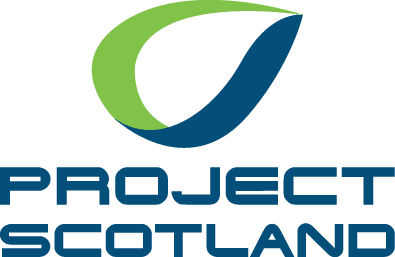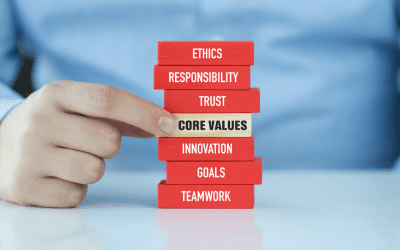How can mentoring a young person boost your professional development?
It was the end of March 2020, and I had just been matched with my first mentee through our charity partners ProjectScotland. Shortly before meeting my mentee, I remember sitting alone outside the maternity hospital. My wife and I were 12 weeks into our first pregnancy, and I was not permitted to attend our scan. As I waited, I was contemplating the significance of the challenge of coaching and guiding your children through life.
Little did I know, my first mentorship would offer some insight into what these challenges might be.
ProjectScotland are our charity partners at iMultiply. They help young people get on in life by volunteering with a wide range of local charities in Scotland. As part of this initiative, these young people can choose to work with a mentor who gives them support and accountability to help them achieve a positive outcome. These positive outcomes may be education, training or employment.
Practice makes perfect
During our first meeting, my mentee and I agreed to proceed exclusively through weekly video calls. I believe the key to successfully developing rapport at the start of any relationship is identifying and sharing common interests or experiences. These may only be determined by making an active effort to listen with the intent to understand, rather than reply, while also practising genuine, open-minded curiosity and empathy. This can be tricky enough to do in person, but over a video call, now that is a whole different challenge. Thankfully my mentee and I succeeded.
In my role as a Recruitment Consultant at iMultiply, all of my employer and candidate meetings have been conducted by video call in recent times. A format that was previously very rare to experience. This mentorship provided me with regular practice at listening and questioning with a genuine intent to understand over a video call. By the time I was required to do so professionally, I was far more comfortable with this process.
Is this a fake lightbulb?
The role of a mentor is similar in many respects to that of a Recruitment Consultant. In my training with ProjectScotland, I learned that it is most important to listen and understand. Offering solutions should be almost the last thing you do, if at all, and only if genuinely relevant.
One of the most challenging aspects of mentoring was identifying an immediate solution to a problem my mentee would share. I had to fight the urge to offer the answer straight away. The danger here was, though the intention was positive, the result could be less so. When the time was taken to talk through and better understand the issue, it would often become apparent that these solutions were not as good a fit as initially thought. I’ll be honest, I did slip up on this once or twice, particularly when these problems related to topics I had personal experience with.
Reflecting on this during the mentorship, I came up with a way to stop myself from jumping the gun. When I experienced one of these immediate solution “lightbulb” moments, I was to ask myself a question: Is this a fake lightbulb? A little silly, perhaps, but this little question is becoming genuinely helpful. The act of asking this question (in my head!) now helps me put the brakes on and take the time needed to properly understand the issue and work through a solution collaboratively with the mentee.
While operating as a Recruitment Consultant, it can also be tempting to offer these immediate solutions. Relatively frequently, the candidate you met in the morning may jump into your head as a quick solution for the job brief you are taking in the afternoon. This can result in a line of questioning with a candidate in mind rather than focussing on the employer’s needs first. In other words, switching from listening with the intent to understand to listening with the intent to reply.
Getting it done with tomatoes
The other challenge that stands out for me was the problem of organisation and productivity. My mentee was a bright, intelligent, energetic young person with passions and interests coming out their ears. As a result, the list of goals, interests and desired achievements was substantial. It would have been challenging for anyone with numerous such ambitions to even begin resolving a plan of action. A recent diagnosis of Attention Deficit Disorder (ADD) meant this was even more challenging for this young person.
While working together to develop a plan of action, we discussed the Pomodoro Technique. Pomodoro is Italian for tomato and the idea is to think of these periods of focus as a single unit e.g. a tomato, rather than a collection of minutes. This is where you allow yourself a 25-minute window of focussed work, followed by a 5-minute break. For many reasons, this technique proved very effective for this young person.
This led me to think, maybe I could make use of this too. After incorporating this into my lockdown home working, my own work rate and productivity increased so much, it was noticed by the leadership at iMultiply!
Continued personal development is something I always try to pursue and becoming a ProjectScotland mentor has been an enriching experience. The lessons I am learning and the skills I am developing benefit both my professional and personal life. My first mentorship spanned a global pandemic, two lockdowns and becoming a parent for the first time. I can only hope that the reflections and lessons I learn along the way will continue to make me a better person, better at my job and perhaps, in future, a better Dad.

For more information about how you could become a ProjectScotland mentor please visit their website or email info@projectscotland.co.uk
finding this interesting?
Why not share it with friends?
More like this…
Why Clear Company Values Matter: A Recruiter’s Perspective
Why Clear Company Values Matter: A Recruiter's...
Welcome Lucy to the Team!
Join us in welcoming Lucy: A Thrilling Addition...
Welcome Kathryn to the Team!
Join us in welcoming Kathryn: Bringing Expertise...
It's good to talk
Get in Touch





